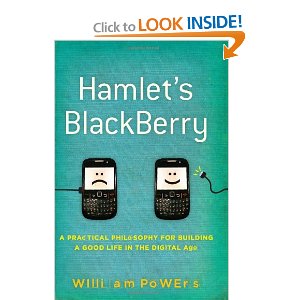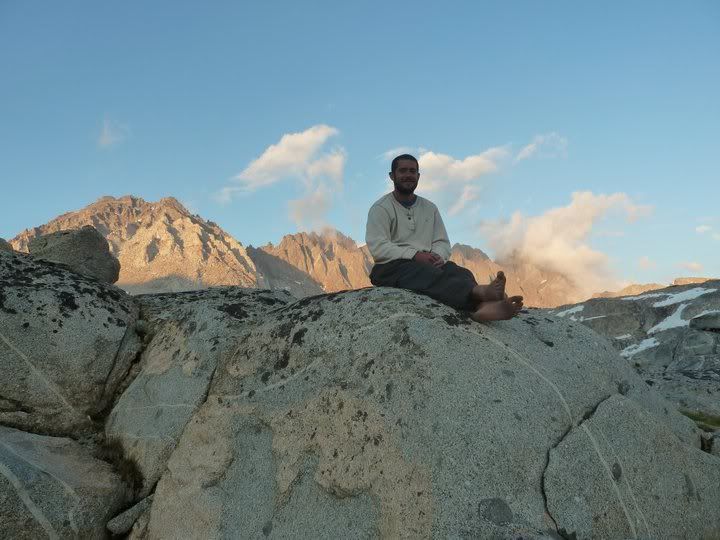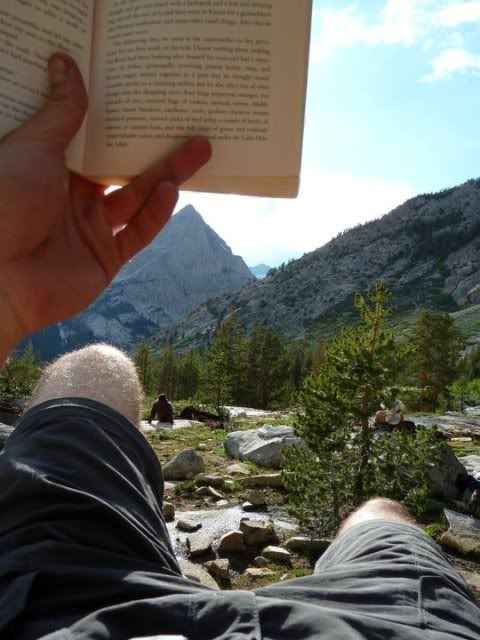Thursday, November 18, 2010
Competing in Amateur Boxing: A How-To Guide
I will be doing a 3-part instructional on how to go about training for and competing in amateur boxing over at The Art of Manliness. The first guide, focusing on finding a gym and coach was published earlier today. Check it out if you like.
Wednesday, November 17, 2010
Monday, November 15, 2010
The Bond Between Brothers
My brother is a contributing author on the excellent website, The Art of Manliness, and he recently had his article on siblings published. It's a really good read, and I had to crack up at some of the examples from our childhood that he used to illustrate different points.
I was googoo and gaga-ing over a colorful trinket and sitting on the carpet, perhaps even giggling to myself quietly with fascination over my toy.
I was googoo and gaga-ing over a colorful trinket and sitting on the carpet, perhaps even giggling to myself quietly with fascination over my toy.
My brother was there too, and he’d had enough of me and my ritual of crapping my pants and being applauded for it.
The toy jumped and twirled within my hands as I explored its intricacies and numerous uses. My brother cast a glaring eye in my direction, one in which his pupils dilated to pinpoints and a hot rage burned within his dark, five-year-old heart. There was something wrong with my face. My lips were turned up with a smile that meant I was happy, and that had to change.
The toy jumped and twirled within my hands as I explored its intricacies and numerous uses. My brother cast a glaring eye in my direction, one in which his pupils dilated to pinpoints and a hot rage burned within his dark, five-year-old heart. There was something wrong with my face. My lips were turned up with a smile that meant I was happy, and that had to change.
Thursday, November 11, 2010
"Hamlet's Blackberry" - Review & Analysis
 William Powers' recent book, "Hamlet's Blackberry" attempts to answer the question of how to build a good life in the digital age. For some more enlightened folks, perhaps this is a silly question. For myself, I feel like the digital tools that make our lives easier also encourage a more shallow and surface-level existence.
William Powers' recent book, "Hamlet's Blackberry" attempts to answer the question of how to build a good life in the digital age. For some more enlightened folks, perhaps this is a silly question. For myself, I feel like the digital tools that make our lives easier also encourage a more shallow and surface-level existence.Like myself and others, Powers is searching for depth. The difference between himself and many other authors on the subject is that he recognizes how valuable and useful the new technology is. "Hamlet's Blackberry" is a search for a way to take the good of the technology, including the ease of access to information, ability to keep in touch with family/friends, work remotely, etc., and discard the bad. The bad in this case is the constant stream of news and trivia, much of which is not useful, the ADHD-inducing brain fuck that the internet can be at times.
Powers takes a very unique way of exploring the subject. Rather than just look at modern examples, Powers looks back on breakthrough technologies throughout history, including written text, the printing press, and wired telegrams. At the time of each of these inventions, people worried about the effect that they would have on learning, concentration, and most importantly, depth. Reading quotes from people who lived through this, the concerns were very similar to what we hear today about being "too connected," "too in touch with the crowd," and "not enough time for the inner self." Take for example Thoreau's concern that the more wired people become, the more likely they are to fill up their minds with junk and trivia, even celebrity gossip.
"We are eager to tunnel under the Atlantic and bring the Old World some weeks nearer to the New; but perchance the first news that will leak through into the broad, flapping American ear will be that the Princess Adelaide has the whooping cough. After all, the man whose horse trots a mile a minute does not carry the most important messages."The obvious follow-up here is that if everyone was worried about this stuff then, and it all turned out all right, why worry about the current technological advances? Powers addresses this as part of his conclusion:
"One might argue that civilization always survives such transitions and moves on, so why worry? Of course we'll survive. The question is whether we will do more than that. In all the earlier periods we've looked at, there were people who thrived and found happiness and people who didn't. The former found something approximating the happy equilibrium Socrates was seeking when he prayed that his outward and inward selves might "be at one.: The latter became hostage to their outwardness and never shook "restless energy of a hunted mind.""What then is the answer? According to Powers, it comes down to creating distance, providing time for inner space, pushing for technologies that allow for inwardness, using old tools (such as handwriting) to ease digital overload, forming positive rituals, creating screen-free "Walden Zones," and consciously disconnecting, or "lowering our internal thermostat."
What does the constant frittering between tasks, jumping from one screen to the next, and constantly interacting with people take from us? In my opinion, the most poignant example is given in the first chapter.
Powers is driving to his mother's house, but gets a late start. He needs to let her know that he will be late, so he picks up his mobile phone (a tool of interconnection in its own right), pulls her up on speed dial, notices the profile picture of her that he has on his phone, and lets her know that he will be arriving later than expected. She laughs, as this is something of an inside joke, as apparently he is late often. He hangs up.
Ill let Powers pick up here:
"Driving along, I feel an unexpected surge of emotion. I'm thinking about how fun it always is to spend time with my mother, how lucky I was to be born to such a warm, companionable person. Lately I've noticed shades of her humor in my son, and I wonder now if he somehow inherited that from her. Have they isolated a gene for good-naturedness?"In the past (but not so long ago), this event would have been much more difficult. Powers would have to pull the car over, look for a payphone, hope he had the correct change, and be sure he had his mother's number memorized. Now, with a click of a button, he can do all of that. Clear case of technology helping build on a relationship. But something more was needed to create the depth of emotion that Powers experienced AFTER the call was over. There was a gap between activities that allowed the author to consider what had just happened. Rather than jumping immediately into the next twitter update or email, the fact that Powers was driving allowed distance between the act of calling and the deep reservoir of feeling that opened up as he thought about his mother. In this case, technology helped created depth.
Rarely do we give ourselves these gaps. We have too many screens open at once, too many email accounts to check, too many IM's coming in to stop and think and feel. To live a good life requires depth, and to do so amidst so much distraction will require a conscious look at what we think about and how we spend our time. William Powers' book, "Hamlet's Blackberry" is the single best resource that I have found to address how to create these all-important "gaps" in our lives.
Wednesday, November 10, 2010
Almost Wordless Wednesdays (5)
I almost forgot about it being AWW today. Thankfully I was reminded by Sean's post.
This picture was taken from the top of the highest point in the Tahoe Sierra Wilderness, and that particular misadventure was detailed meticulously at A Misguided Ascent & Summit of Pyramid Peak. We were not prepared for the hell that awaited. Yes, I blame Clara.

This picture was taken from the top of the highest point in the Tahoe Sierra Wilderness, and that particular misadventure was detailed meticulously at A Misguided Ascent & Summit of Pyramid Peak. We were not prepared for the hell that awaited. Yes, I blame Clara.

Making Soap: The Tyler Durden Chronicles, Part Two
While my first batch of soap came out looking like mashed potatoes, it works. It lathers up well, gets you clean, and feels good on the skin. It's just really, really ugly.
This is what I learned for the next time:

You can read the first part of my soap misadventures here.
Ever have a DIY project turn out completely and utterly wrong?
This is what I learned for the next time:
- Never guesstimate when judging temperatures. Some may have this skill. I clearly do not.
- All rough add-ins, such as oatmeal and lavender should be ground up. This should have been obvious.
- Invest in a stick blender. Just fucking do it. It's only $20, and life is too short.
- Less creativity with molds. Remember that you have to get the soap out of this ornate contraption that you found at Salvation Army.
- Put saran wrap down on the molds. Again, you will have to get the soap out of this thing.
- Don't underestimate how hot Sodium Hydroxide gets. Don't underestimate how long olive oil takes to cool down.
- Find a better place to store these than in the living room. It IS a conversation starter though.

You can read the first part of my soap misadventures here.
Ever have a DIY project turn out completely and utterly wrong?
Sunday, November 7, 2010
Money Well Spent
As a general rule, I do not like to spend money. I do not have any particularly expensive hobbies, am pretty anti-materialistic in terms of clothing, cars, furnishings and other trappings. That being said, there are some things that I have purchased over the years that I am 100% glad that I did. One thing I did notice is that these mostly involved "experiences" rather than "things." It certainly makes me consider carefully where I want to spend my money in the future, where I get personal value, and what types of things I later consider "wasteful."
In no particular order, here are the best expenditures that I have spent or spend money on.
What do you spend your money on? What do you feel is money well-spent, and what do you consider wasted purchases?
In no particular order, here are the best expenditures that I have spent or spend money on.
- PRK Eye Surgery - I have worn glasses and contacts since the 5th grade, and my eyes worsened all the way through College. My vision was poor enough to require glasses/contacts immediately upon waking, and then throughout the day. The loss of a contact was a major emergency, and I was always getting them knocked out while boxing. Earlier this year I had corrective eye surgery. My vision is now 20-15, I don't have to deal with contacts, eye solution, glasses or annual exams. Great use of money.
- Trip to Thailand & Cambodia - I met my brother and his girlfriend in Bangkok, Thailand last November. It was the first time traveling internationally with my brother, and it was money well-spent. We went snorkeling in Koh Chang, saw Angkor Wat, kicked around in Phom Phenh, visited Lumpini Stadium, the mecca of Muay Thai, and generally had an amazing time. This trip would have been worth it if it had cost twice as much.
- Annual AAA Membership - Less exciting, but my AAA membership is the best deal for anything that I have ever come across. At just over $100 a year, I get roadside service, free towing, and I get to skip the DMV. If I use the service just once a year, it pays for itself.
- Gym Dues at Wild Card Boxing Gym - While I pay a decent amount of money each month to train at this world famous gym, I have an excellent coach, train alongside famous professionals and top-level amateur fighters, and get excellent sparring. It is actually rare that I spar with someone more than once or twice, just because there are so many people coming through the gym that you are constantly getting new and different competition.
What do you spend your money on? What do you feel is money well-spent, and what do you consider wasted purchases?
Thursday, November 4, 2010
Just This Once...
One of my biggest pet peeves is bloggers who blog about...their blog. So in order to piss off myself and others, that is exactly what I am going to do.
Basically, I made some changes to the format and design, mostly on the advice of my friend Riley, over at WayFaring Stranger. She is a blogger I actually know in real life, and she puts together very detailed and helpful site reviews. Since I really, honestly and truly suck at the internet, her advice was very useful to me.
I changed the header picture, removed some of the tabs at the top that I didn't feel added any value, changed up the "about me" section, and got rid of a bunch of the random shit that was on the side-bar. Soooo...thoughts? Any advice, opinions, or suggestions would be appreciated.
Feel free to send any hate-filled and profanity-laced comments on content as well. At the end of the day, I write this blog for me, but if there are certain subjects that people are interested in, I would like to know about it.
Apologies for this break from actual posting, and we will get back to our regularly scheduled programming shortly.
Basically, I made some changes to the format and design, mostly on the advice of my friend Riley, over at WayFaring Stranger. She is a blogger I actually know in real life, and she puts together very detailed and helpful site reviews. Since I really, honestly and truly suck at the internet, her advice was very useful to me.
I changed the header picture, removed some of the tabs at the top that I didn't feel added any value, changed up the "about me" section, and got rid of a bunch of the random shit that was on the side-bar. Soooo...thoughts? Any advice, opinions, or suggestions would be appreciated.
Feel free to send any hate-filled and profanity-laced comments on content as well. At the end of the day, I write this blog for me, but if there are certain subjects that people are interested in, I would like to know about it.
Apologies for this break from actual posting, and we will get back to our regularly scheduled programming shortly.
Wednesday, November 3, 2010
Profile of Pat Tillman - "Where Men Win Glory"
 When I first started "This Rugged Life," I promised "interviews, analysis, and reviews of people, events and ideas that push the limits of our mind and body." That has sometimes (almost always) taken a backseat to my narcissistic urge to write about my own thoughts, ideas and adventures. That is something of a shame, as there are a huge number of people who are living the kind of life that I merely aspire to.
When I first started "This Rugged Life," I promised "interviews, analysis, and reviews of people, events and ideas that push the limits of our mind and body." That has sometimes (almost always) taken a backseat to my narcissistic urge to write about my own thoughts, ideas and adventures. That is something of a shame, as there are a huge number of people who are living the kind of life that I merely aspire to.One such individual was Pat Tillman, the man who gave up a lucrative and comfortable life as a professional football player to enlist in the Army after the 9-11 attacks on New York City. While this kind of courage and patriotism would be impressive enough by itself, I am even more fascinated by the way Tillman lived his life up until that pivotal decision. Fiercely loyal, passionate, and a man strong in both mind and body, there is much to be admired in Pat Tillman.
There is something of the modern "Renaissance Man" in Tillman. He was a voracious reader, but suspicious of any spoon-fed information. His refusal to accept other people's opinions as his own led him to sharply question the invasion of Iraq months and years before it became popular and socially acceptable to do so. Tragically, Tillman was gunned down by his fellow soldiers in a case of fratricide during a firefight in Afghanistan. The politics and secrecy that follow his accidental death will infuriate the reader.
Tillman is captured faithfully by his biographer, Jon Krakauer, the author who wrote "Into the Wild," and "Into Thin Air." "Where Men Win Glory - The Pat Tillman Odyssey," is an excellent mix of a wildly interesting subject matched with an extremely talented author. If you have not read this book, you should.
Almost Wordless Wednesdays (4)
Monday, November 1, 2010
A Case of the Mondays?
I may be the only person I know who likes Mondays. They are kind of like mini versions of New Years Day, a fresh start to work on your resolutions and goals for the week, month and year. And they come more often, so if you screw up, as I inevitably do, another Monday is coming around the corner shortly.
Sunday evening is usually spent planning out the coming week. I go through my in-boxes, both real and virtual, scan my lists of plans, goals, dreams, etc. and put together as much of a schedule as possible. I will clean up my desk, get my email folders down to zero, and generally start the week with as much of a clean slate as I can. This way, Monday is fairly stress-free. Yes, it is a rude and sudden jolt back to reality from the weekend, but I do what I can to minimize how hard the landing will be.
Sunday evening is usually spent planning out the coming week. I go through my in-boxes, both real and virtual, scan my lists of plans, goals, dreams, etc. and put together as much of a schedule as possible. I will clean up my desk, get my email folders down to zero, and generally start the week with as much of a clean slate as I can. This way, Monday is fairly stress-free. Yes, it is a rude and sudden jolt back to reality from the weekend, but I do what I can to minimize how hard the landing will be.
Subscribe to:
Posts (Atom)

